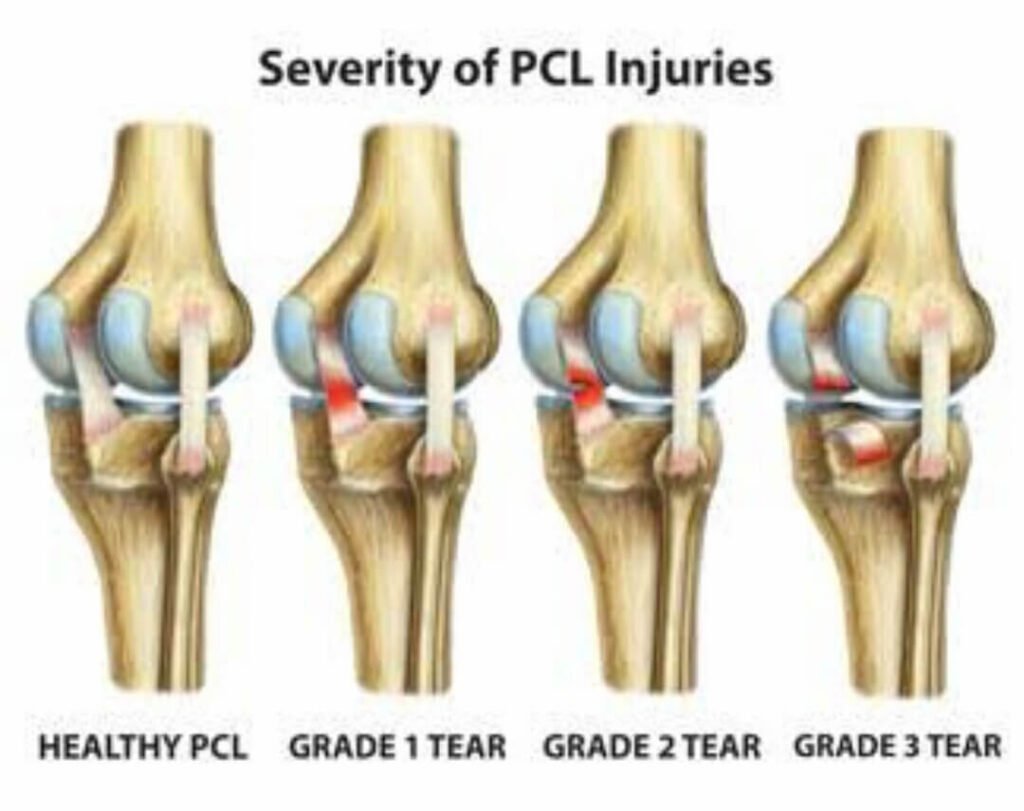PCL Injury/ Tear
Pcl or posterior cruciates ligament is one of the crucial ligment of the knee. Pcl – similar to the ACL- (Anterior cruciate ligament) connects thigh bone (femur) to your leg bone (Tibia) and provide stability to the joint.
PCL injuries are less common than ACL

SYMPTOMS
Symptoms of PCL injury include
Pain – Mild to moderate pain following an injury can cause difficulty in walking.
Swelling– Some swelling occurs immediately after the injury
Instability– Your knee may feel loose, a feeling of giving away is experienced after the PCL tear.
CAUSES
The most common causes of PCL tear
- Road traffic accident – A dashboard injury when the driver or passenger hits his bent knee against the dashboard, pushing the leg bone (TIBIA) and causing the PCL tear.
- Contact sports – Players who plays sports like football, hockey are more prone to have a PCL injury when they turn on a bent knees with their foot pointed down. Also during the tackling with knee bent can result in PCL injury.
COMPLICATIONS
An unattended PCL tear can lead to patella femoral pain due to early onset of patello-femoral arthritis. Also other structures like meniscus and cartilage gets torn due to the instability in the knee.
DIAGNOSIS
The surgeon will clinically examine your knee and perform some special tests to confirm the PCL injury
Also an MRI will be done that will clearly show a posterior cruciate ligament tear and determine if other knees structures like meniscus or cartilage are also injured.
TREATMENT
In most cases, PCL reconstructions surgery is the treatment of choice. It will be an arthroscopic procedure where the ligament is reconstructed using a hamstring graft from your body and secured with 2 tiny screws which osteo integrates with time. Post surgery knee is immobilized in a long knee brace for 6 weeks.
